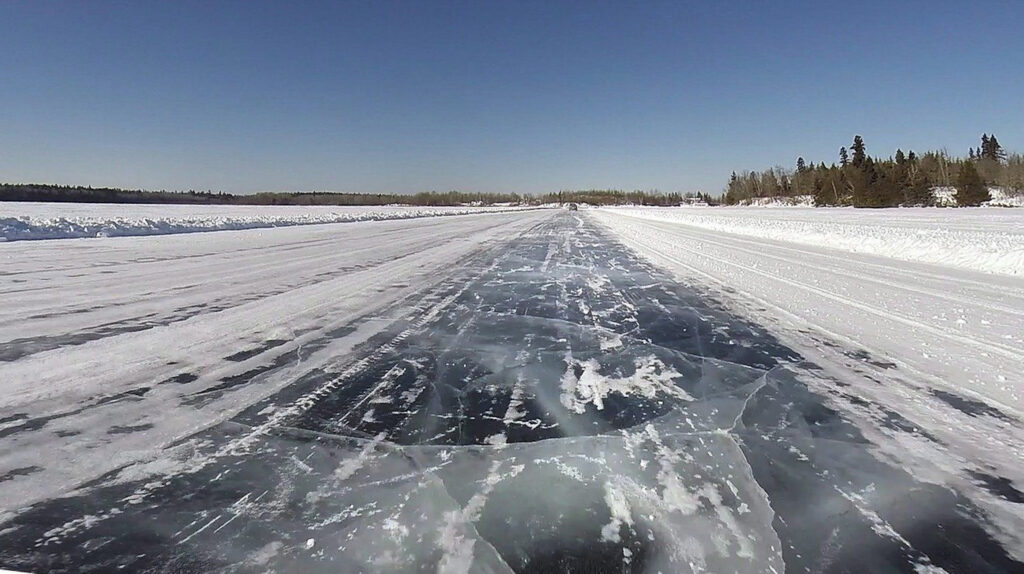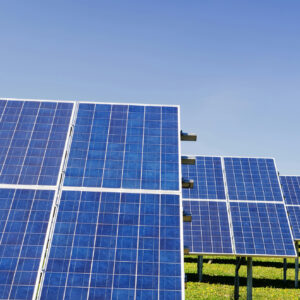
Impassable winter roads are delaying vital shipments and threatening the safety of First Nations across northern Ontario, leaders warned as they pressed the provincial and federal government for support.
An unseasonably warm winter, intensified by human-caused climate change, has left many remote First Nations cut off from an essential road network built over frozen land, lakes and rivers. The situation has prompted recent state of emergency declarations by First Nations in Manitoba and Ontario, as well as repeated requests for support.
“It’s becoming more and more dire, and more challenging,” said Grand Chief Alvin Fiddler of the Nishnawbe Aski Nation, an organization of First Nations across northern Ontario. “It just means that they would have no ability at all to transport anything and that everything would then have to be hauled up by plane.”
Leaders of Nishnawbe Aski Nation this week declared an emergency over conditions on winter roads, which they said remote communities typically depend on from January to March for essentials including fuel, food and construction materials. The move came after four northern Manitoba First Nations also declared a state of emergency over a failing road network in the region.
Record-breaking heat has swept across Canada in recent weeks after forecasters predicted a strong El Nino climate pattern, coupled with human-caused climate change, would result in a warmer than average winter.
As of early this month, 20 First Nations in northern Ontario were still unreachable by winter road, an update on the Nishnawbe Aski Nation’s website said. Ten others were reachable by light vehicle, and only one had a winter road connection open to full loads such as semi-trucks.
Fiddler said the conditions are the latest example of how climate change, which threatens to make the winter season increasingly shorter and unpredictable, disproportionately impacts First Nations.
“That’s what we’re seeing right now sort of play out in real time in our territory,” he said.
Late last month, a First Nation waiting on a delivery of a rapid attack fire truck lost its only school to a suspected arson. In a news release, the Eabametoong First Nation said the community “had no alternative but to try to fight the fire with the few fire suppression resources available.”
With spring fast approaching, Deer Lake Chief Leonard Mawakeesick said the remote community near the border with Manitoba is in a race against time. He said the First Nation is waiting on crucial fuel deliveries and hoping for supplies to build a seniors’ centre and make upgrades to the local arena.
“Companies will not touch our infrastructure projects due to — it’s just not safe for them to drive up,” said Mawakeesick. “It’s getting shorter every year,” he said, referring to the winter road season, “and I only get funding for maintenance up to March 15, so that gives me a month for the lake to get bigger, the thickness [ice].”
The Nishnawbe Aski Nation’s emergency resolution this week called for support from the provincial and federal government in the form of subsidies to transport critical supplies by plane. But, Fiddler said, there’s also a need to develop long-term solutions.
NDP MPP Sol Mamakwa said the province could look to help build out First Nations’ airports to accommodate larger planes and deliveries, along with boosting funding to maintain winter roads.
“They have a role to play,” said Mamakwa, who represents the northwestern Ontario riding of Kiiwetinoong, in reference to the provincial government.
A spokesperson for Ontario Indigenous Affairs Minister Greg Rickford said Ontario was working with Indigenous communities and the federal government to respond “quickly and appropriately.”
“With a shortened winter roads season, the importance of permanent, year-round access is clear,” said spokesperson Curist Lindsay in a statement.
All-season roads can be contentious, said Matthew Angees, executive director of the Shibogama First Nations Council, comprised of five northern communities. While some have expressed concerns about the environmental degradation related to construction, he said other leaders are skeptical of the social changes an all-season road could bring.
“Whatever is going to happen down the road,” he said, “we’ll be at the mercy — not just our communities, but all the isolated communities — will be under the mercy of the weather, the climate change.”








